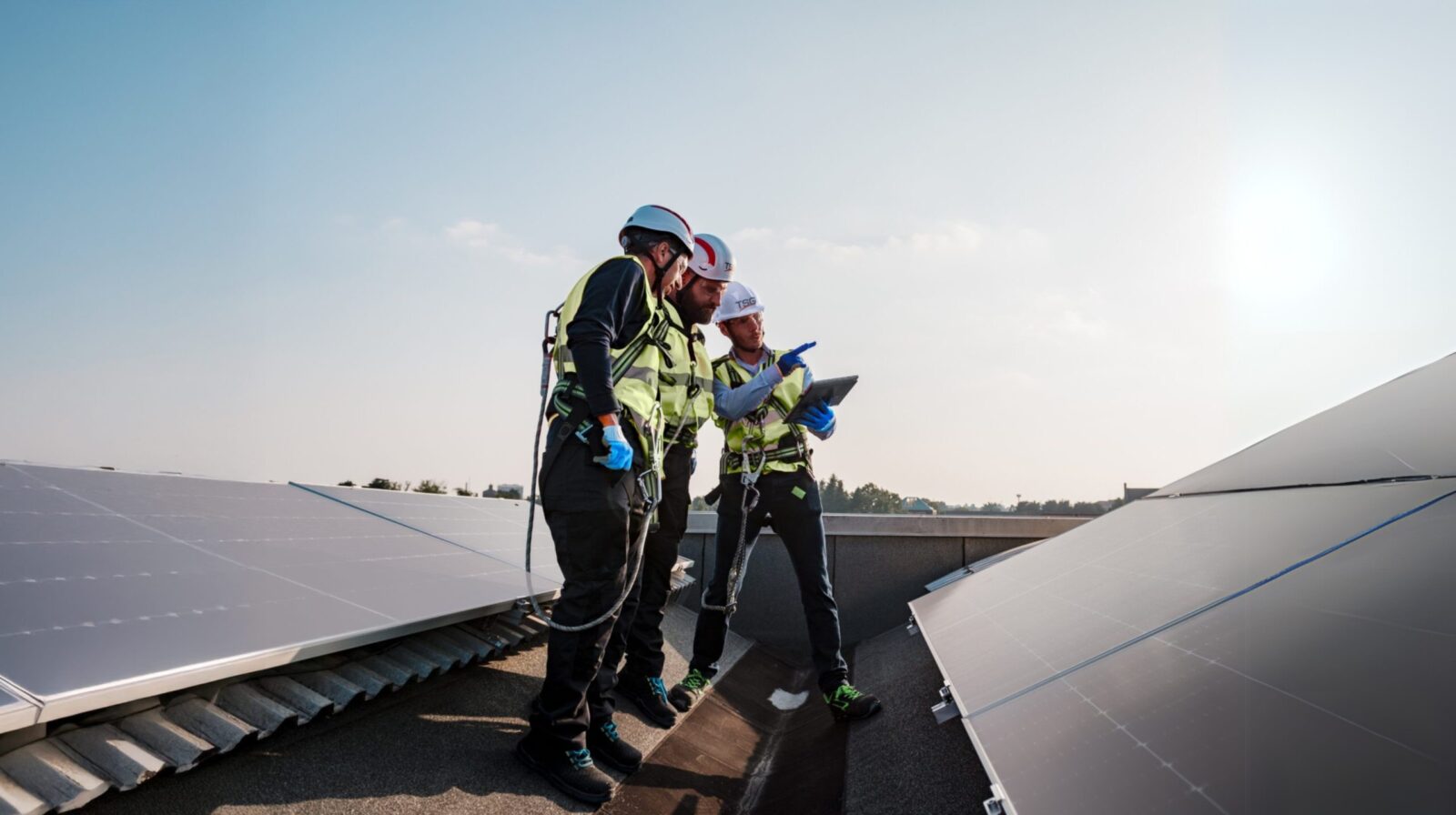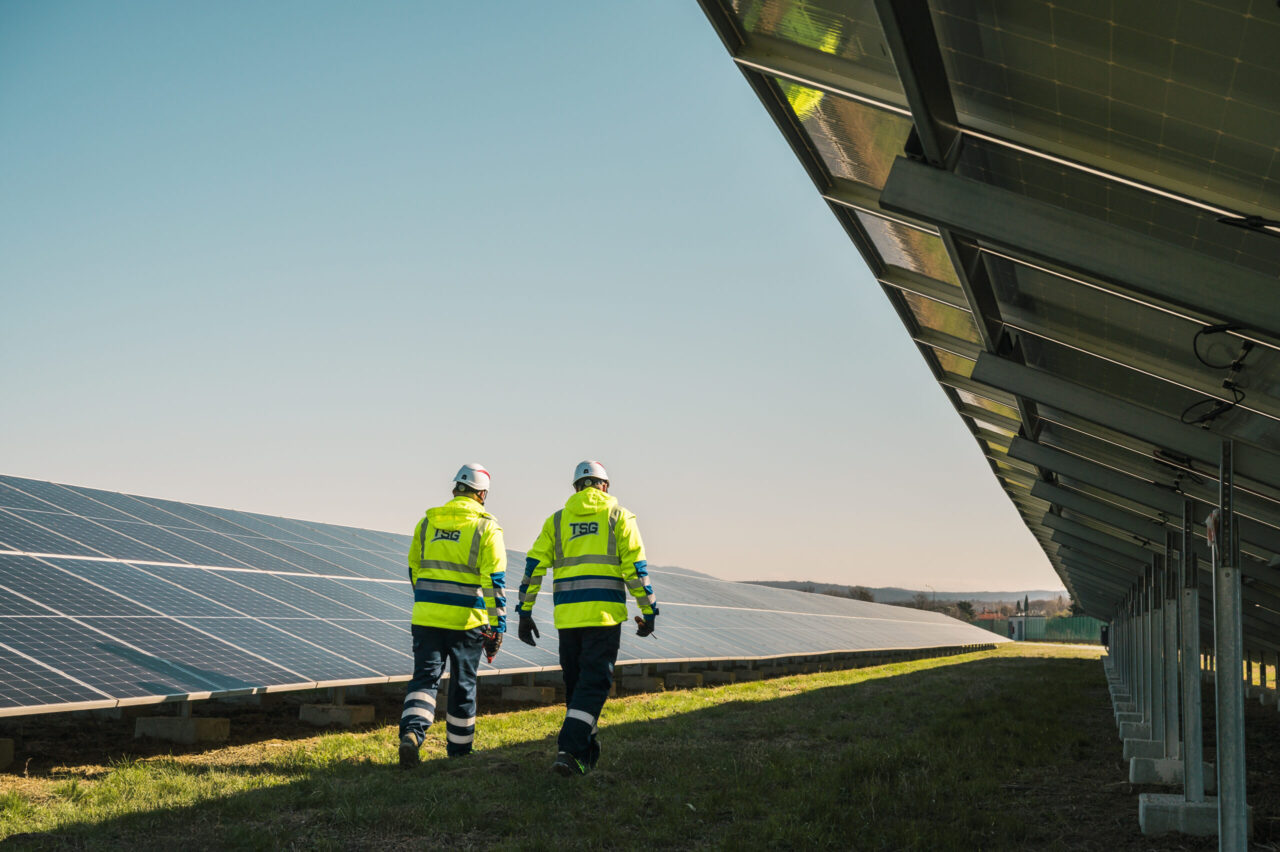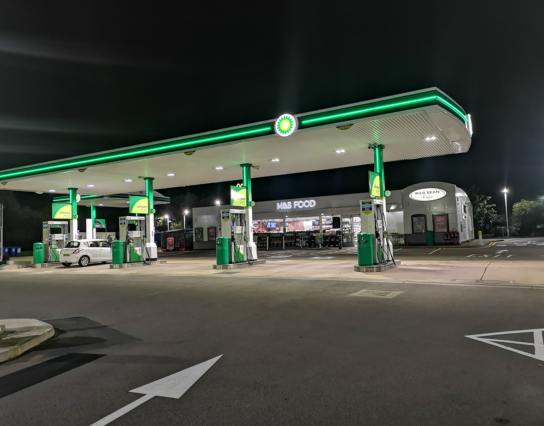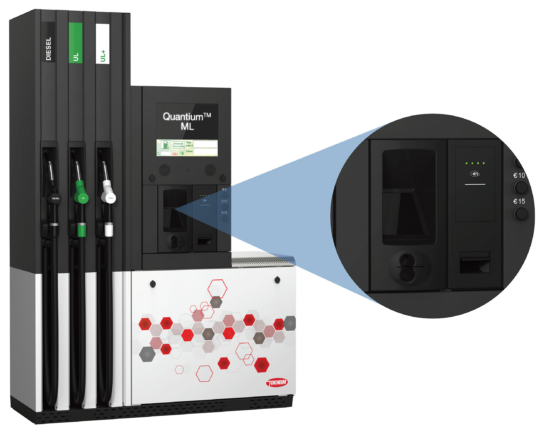Innovative Solar Applications for Industry
By Cheryl Ashton, Marketing Coordinator, TSG UK
As the UK accelerates its transition to net zero, solar power is emerging as a cornerstone of commercial energy strategy. Once confined to rooftops, solar photovoltaic (PV) systems are now being deployed in increasingly creative ways, transforming car parks, logistics hubs and industrial estates into productive energy assets. This article explores the evolution of solar applications beyond the rooftop, examining how businesses are leveraging solar carports, integrated energy hubs and battery storage to cut costs, boost resilience and demonstrate environmental leadership.
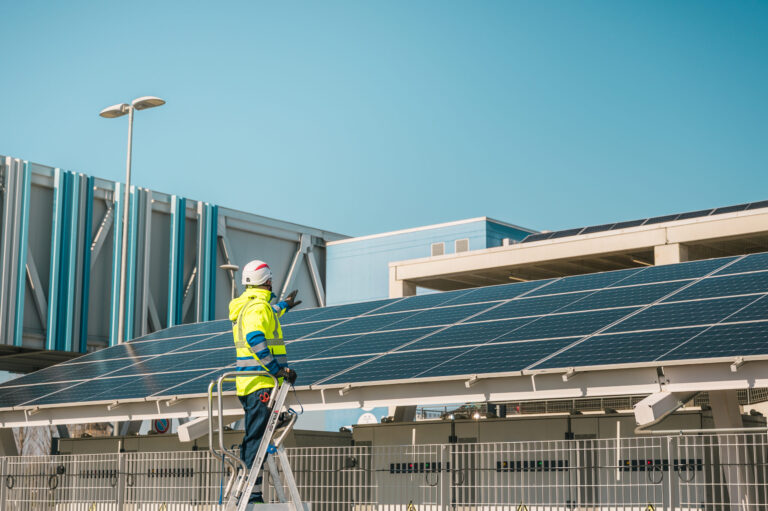
A New Dawn for Solar
Solar energy is clean, abundant and increasingly affordable. When paired with battery storage, it becomes a reliable source of electricity on demand. As the climate crisis intensifies, the UK is under growing pressure to reduce its reliance on fossil fuels. Solar power offers a practical solution, enabling businesses to generate their own electricity, mitigate grid dependency and contribute to national decarbonisation goals.
The technology behind solar panels has advanced rapidly, driving down costs and improving efficiency. Today’s solar PV systems are not only more powerful but also more versatile, allowing for deployment in a wide range of commercial settings. From forecourt canopies to solar-integrated electric vehicle (EV) hubs, the possibilities are expanding.
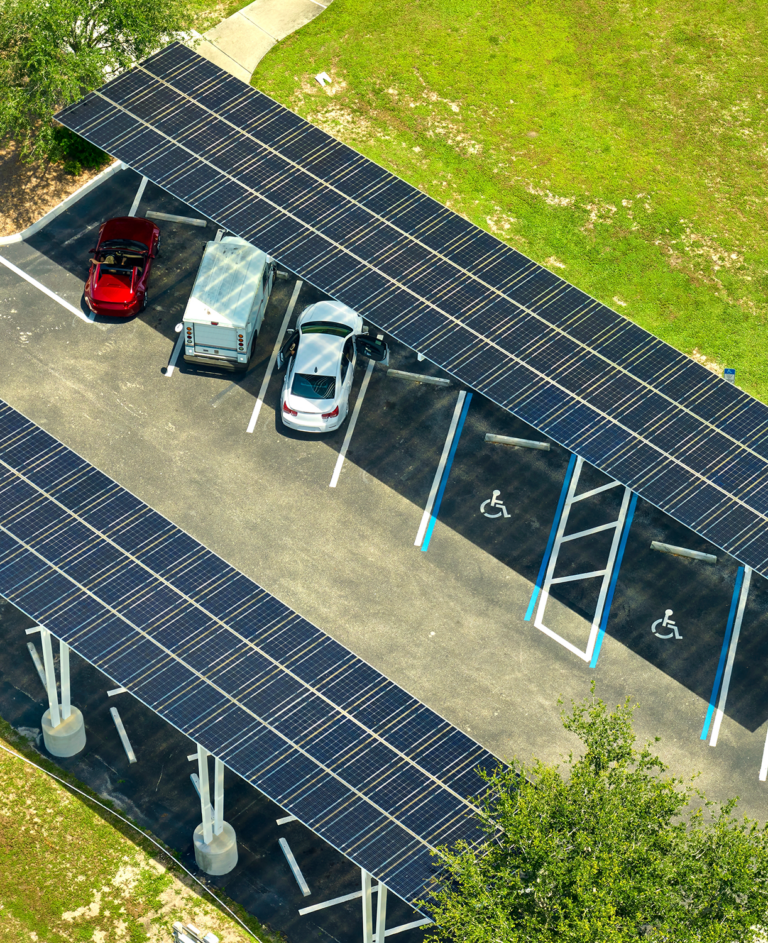
Solar Carports: Power from the Pavement
One of the most innovative applications of solar PV is the solar carport. These structures transform car parks into clean energy generators, with solar panels mounted on canopies above parking bays. The electricity produced can be used to power the building, charge electric vehicles or be stored for later use.
Bentley Motors has confirmed the completion of a 2.7 megawatt (MW) solar carport at its headquarters in Crewe, covering 1,378 parking spaces and generating enough electricity to meet 24% of the site’s energy needs. The installation comprises 10,000 solar panels and is currently the largest of its kind in the UK, reducing carbon emissions by more than 3,000 tonnes each year*. For smaller businesses, even modest carport installations can deliver substantial savings and enhance sustainability credentials.
Solar carports offer more than just energy. They provide shade and shelter for vehicles, improve site aesthetics and convey a visible message of environmental responsibility to customers and employees alike.
* Source: Solar Power Portal
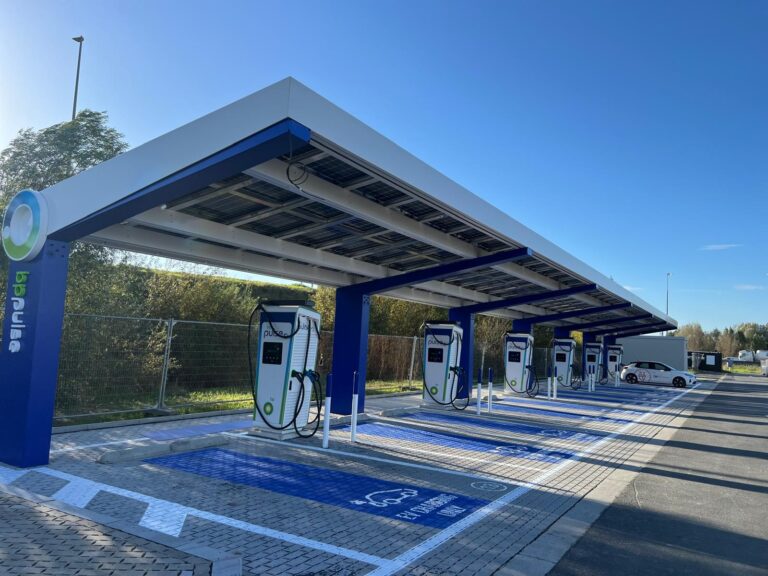
Integrated Energy Hubs
Forward-thinking businesses are now combining solar PV with battery storage and EV charging to create integrated energy hubs. These systems enable companies to generate, store and use electricity on-site, reducing exposure to volatile energy prices and grid constraints.
TSG UK is at the forefront of this movement, delivering tailored solar and EV charging solutions for commercial operators. As a leading engineering, procurement and construction (EPC) contractor and an established independent connection provider (ICP), TSG manages every stage of the process, from feasibility studies and design to installation and maintenance. This integrated approach supports fleet electrification, energy independence and long-term sustainability.
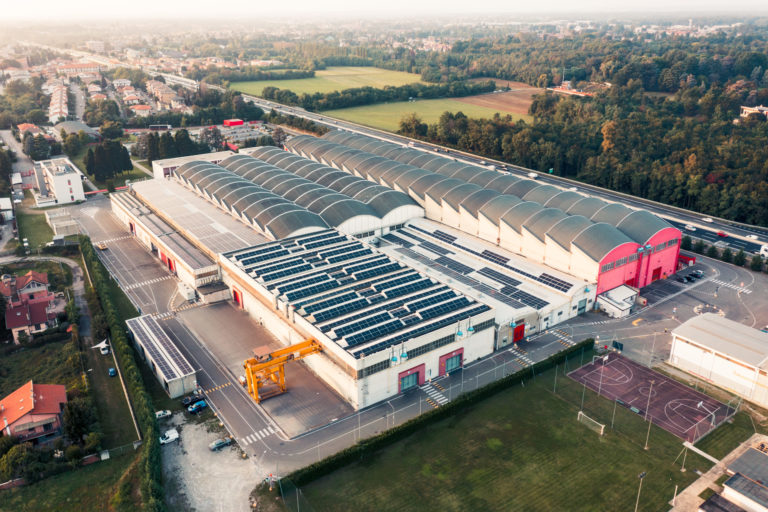
The Business Case for Solar
Solar PV is now one of the most affordable forms of renewable energy available to UK businesses. Installation costs have fallen significantly over the past decade, while energy prices have soared. This contrast has sharpened the commercial case for solar adoption.
As of 2025, the UK has over 15 gigawatts (GW) of installed solar capacity, with commercial and industrial installations accounting for approximately 42%†. Annual growth in the sector is estimated at 12 to 15% driven by rising energy costs, net-zero mandates and improved access to financing.◊
A well-designed solar PV system can achieve payback in five to seven years, depending on site conditions and energy usage. Beyond that point, the electricity generated is effectively free, delivering sustained operational savings and improving the bottom line.
† Source: Ecoaim
◊ Source: CarbonBrief
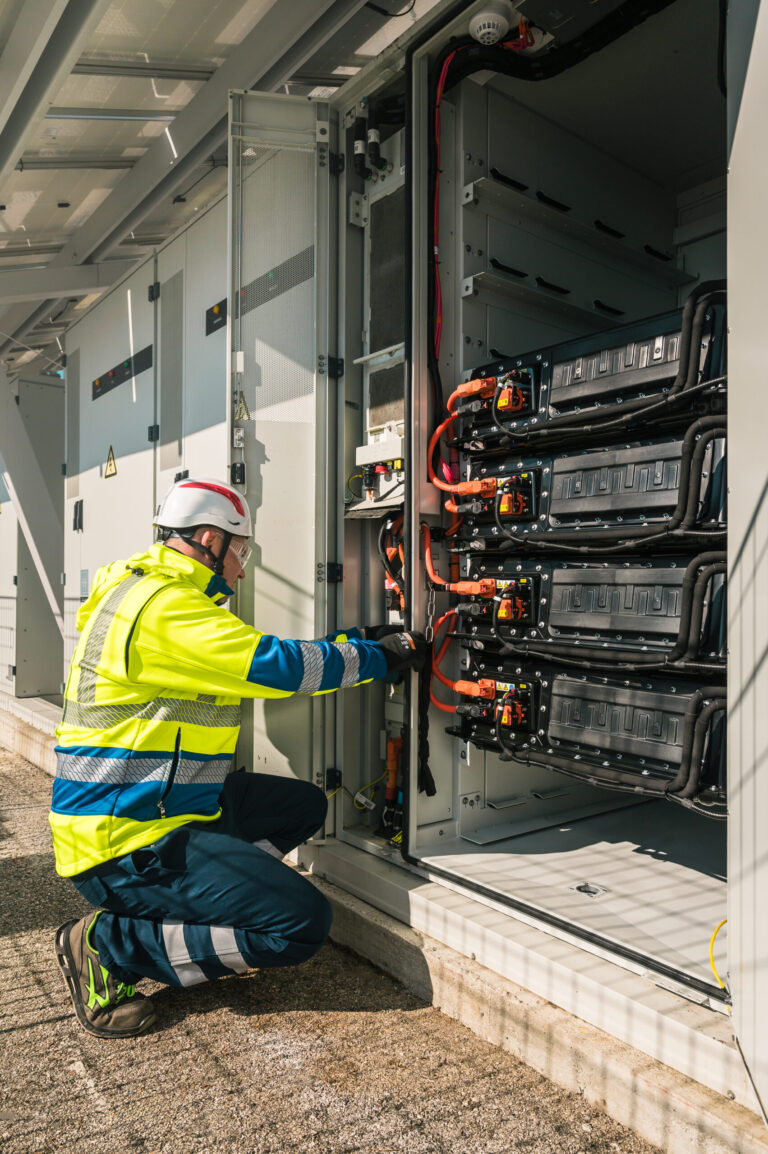
Battery Storage: Unlocking Solar’s Full Potential
To maximise the value of solar energy, many businesses are investing in battery energy storage systems (BESS). These systems store surplus electricity generated during daylight hours for use at night, during peak demand or in the event of a power outage.
Commercial battery systems in the UK typically cost between £200 and £450 per kilowatt-hour (kWh), with payback periods ranging from 4 to 10 years. These figures are supported by independent analysis from Solar Energy UK, which highlights the growing affordability and financial viability of battery storage for businesses. Benefits include peak shaving, blackout protection, predictable energy costs and revenue from grid services such as Demand Side Response (DSR), where companies are incentivised to reduce or shift electricity use during peak periods, and Enhanced Frequency Response (EFR), which involves rapidly discharging stored energy to help stabilise the grid’s frequency.
When combined with solar PV, battery storage enables businesses to achieve energy independence, reduce carbon emissions and improve resilience. It also permits participation in the Smart Export Guarantee (SEG), a government-backed scheme that allows businesses to earn income by exporting surplus solar energy to the grid. Under SEG, energy suppliers pay businesses for each kilowatt-hour of unused electricity they return to the network, enhancing return on investment while supporting the broader shift to renewable energy.
Funding the Transition
Government support for commercial solar adoption is stronger than ever. The UK Shared Prosperity Fund (UKSPF) offers grants covering 30 to 75% of installation costs for eligible Small and Medium-sized Enterprises (SMEs). Additional incentives include zero VAT on solar panels and batteries until March 2027, and tax relief through the Annual Investment Allowance (AIA) and Full Expensing.
These financial mechanisms significantly reduce the upfront cost of solar investment, making it more accessible to businesses of all sizes. Regional schemes, such as the Net Zero Grant Programme in Birmingham and the Green Business Loan Scheme in Wales, provide further support.
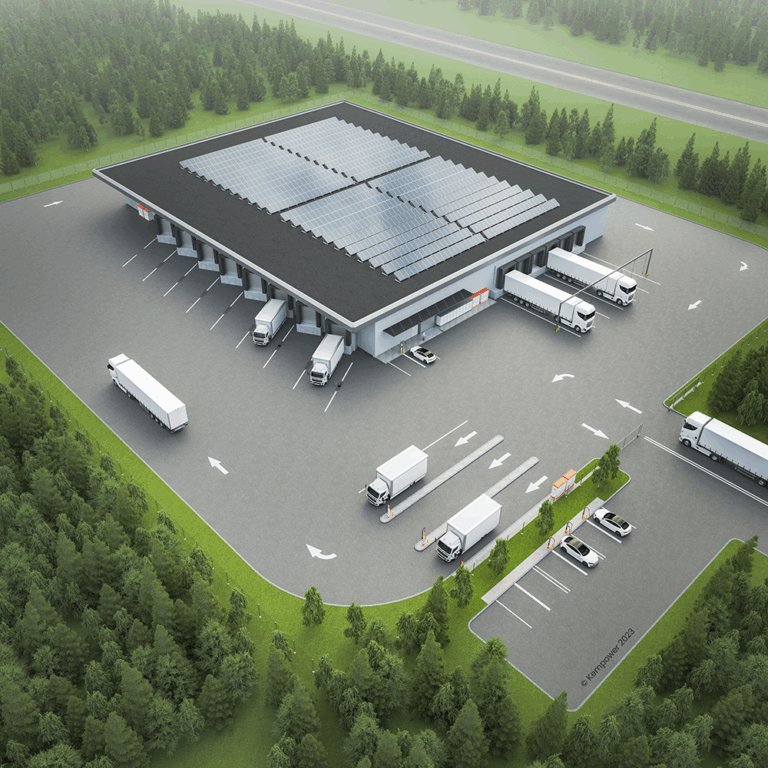
Solar for Fleets and Facilities
The electrification of transport is placing new demands on the UK’s energy infrastructure. As the government’s ban on new fossil fuel vehicles approaches, businesses are under pressure to switch their fleets to electric.
Solar-powered EV charging offers a sustainable solution. By installing solar panels to power on-site charge points, businesses can reduce energy costs, improve operational efficiency and demonstrate leadership in sustainability. Branded EVs powered by solar energy reinforce a company’s green credentials and appeal to customers who value responsible business practices
TSG supports fleet operators with end-to-end EV charging solutions, including site surveys, design, installation and maintenance. Their systems are scalable, future-proof and tailored to each client’s needs.

Sustainability with Substance
Solar PV represents more than a green initiative. It is a tangible, measurable and credible method to cut carbon emissions and meet net-zero targets. Every kilowatt-hour generated on site reduces reliance on fossil-fuelled power stations and contributes to a cleaner energy future.
Unlike many sustainability measures that offer limited impact, solar delivers real results. It enhances Environmental, Social and Governance (ESG) performance, a framework used to assess a company’s environmental responsibility, social impact and ethical governance. By investing in solar, businesses strengthen supply chain relationships and build trust with customers, investors and regulators, demonstrating a clear commitment to sustainability, operational efficiency and long-term resilience.
Why Now?
The momentum behind solar is building. Over 1.7 million solar installations are active in the UK, with commercial adoption growing steadily. For businesses, the opportunity is clear. Solar PV is no longer a niche technology; it is a mainstream solution that reduces costs, strengthens energy security and supports sustainability goals.
With the right partner, the transition to solar is straightforward. TSG Solar helps businesses harness the sun’s power, delivering bespoke energy solutions that work today and tomorrow.
